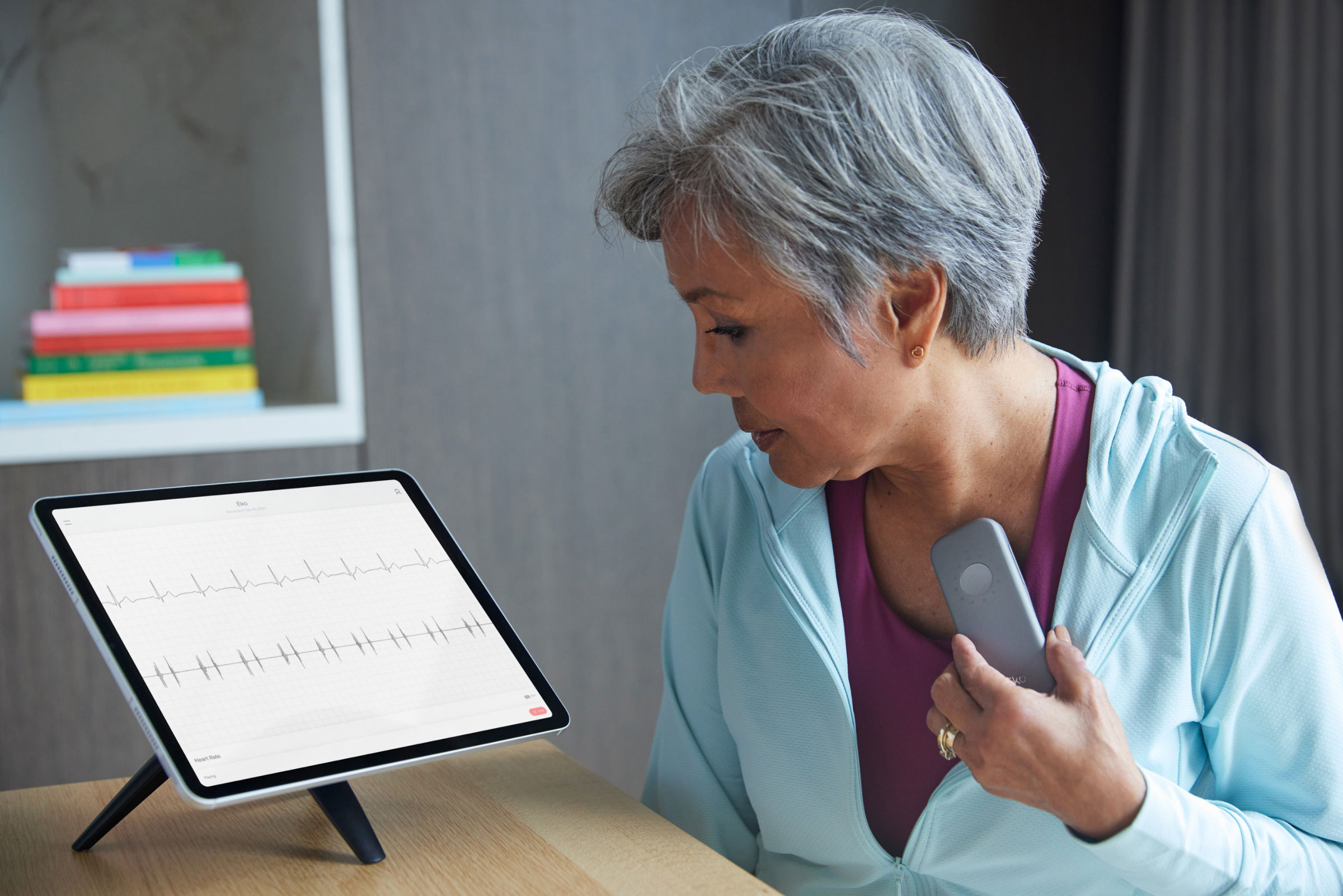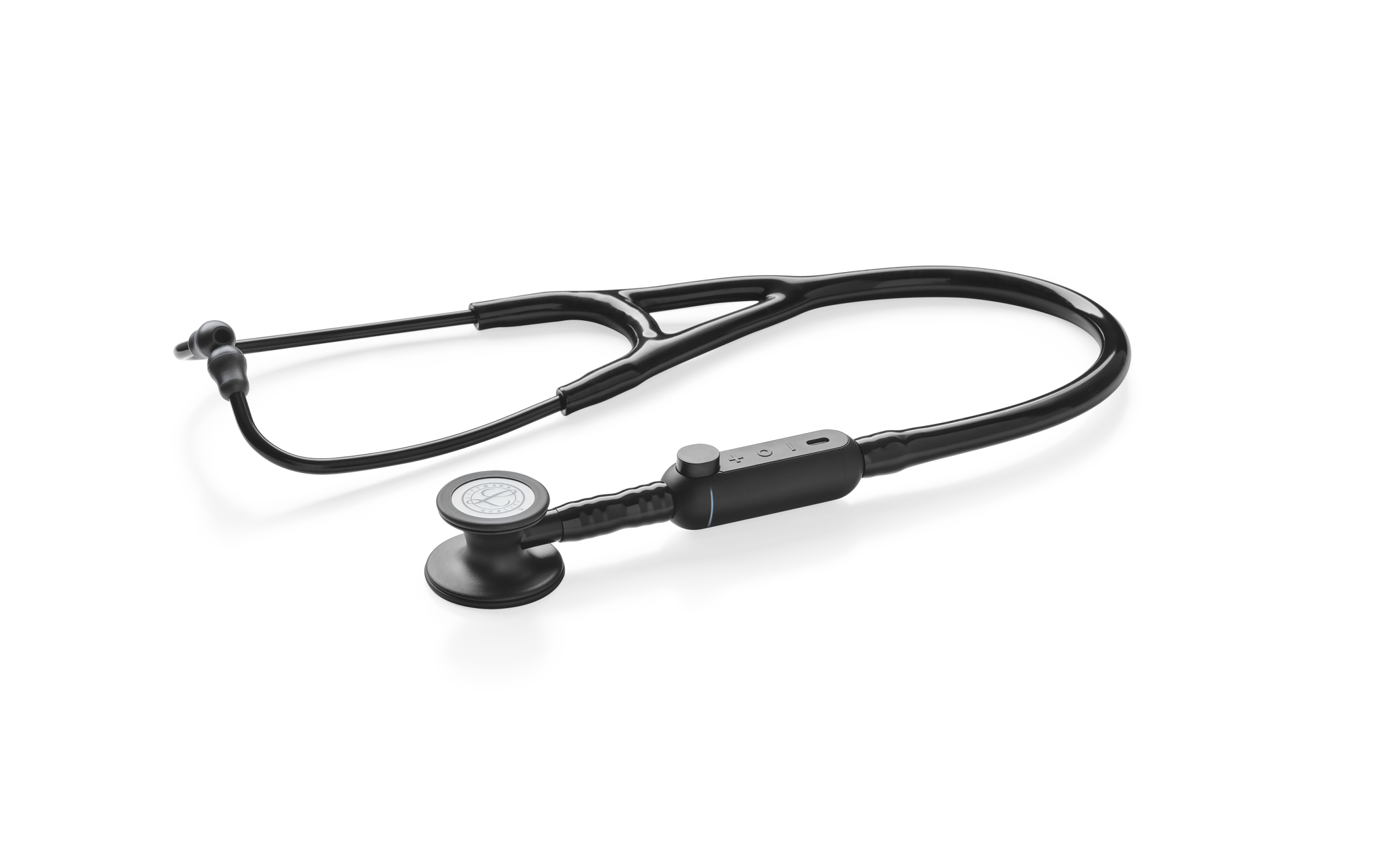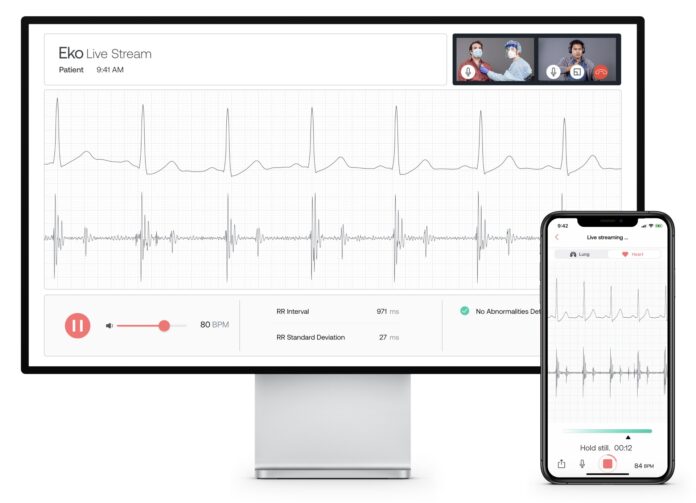The stethoscope has come a long way from its humble beginnings in the XNUMXth century. The regular acoustic type is still used every day, but a panoply of digital options have been added that can amplify or convert heart sounds into electrical signals. Eko, a company founded in 2013, has focused on bringing applied AI to the stethoscope space. There is now real-world data suggesting the company has made progress and has secured a $30 million extension on its round of funding. Serie C above to continue your work.
Hardware Eko It consists of digital stethoscopes that have some basic information and alerts, with noise cancellation technology or the ability to record and display heartbeats. But the company has also been modifying some FDA-approved clinical support algorithms.
In 2020, FDA granted 510(k) authorization to a set of algorithms Eko that help detect heart murmurs and atrial fibrillation, or AFib. (A company obtains this authorization when it demonstrates that its technology is similar to what already exists). That approval was supported by more clinical results published in The Journal of the American Heart Association in 2021. On Tuesday, Eko announced that this algorithm will form the backbone of the new software called Eko App. This integration will move Eko firmly into the applied AI space, said Connor Landgraf, CEO and co-founder of Eko.
Eko has been working to develop analytics capabilities based on machine learning. But until now, the company has focused on clinical devices and tools. This software release will be the company's first real foray into more complex AI applications.
What does the new software mean for doctors? It's still not exactly a "machine learning brain." Basically, a doctor could listen to heart sounds and take an ECG (electrocardiogram) just like before, while the new software captures that data in the background. It then provides an analysis, or interpretation, of that ECG rhythm that could help alert a doctor to the presence of AFib, or a heart murmur.
“The doctor basically gets an analysis report or summary view of the patient's heart sounds, lung sounds and ECG data right away, right there in the exam room with the patient,” the CEO said.

The Eko CORE stethoscope. Image credits: Eko
This might be reminiscent of something similar to an Apple Watch, another device that has an FDA approval like Atrial fibrillation detection software. Eko it sits solidly on the professional side, rather than the consumer side. Instead, think of this new software as a clinical decision support system (CDS). These systems, which are popping up everywhere from radiology to hematology, don't actually make diagnoses, but are designed to help doctors interpret medical data.
Such systems are not new, but they are becoming widespread and are used regularly by many US hospitals. However, there are indications that CDS systems have been slower penetrating in outpatient clinics or smaller health systems not affiliated with hospitals. Eko, Landgraf says, strives to reach those smaller clinics with its devices and algorithms.
“The goal is to be able to expand the capacity of a specialist to put that cardiological expertise in the hands of a rural primary care doctor, an emergency room doctor or a nurse practitioner from a minute clinic,” he said.
Still, detecting atrial fibrillation and heart murmur is not the company's ultimate goal. As COO Jason Bellet said after the closing round of the Serie A de Eko in 2019, the company was really looking for "screening for structural heart disease and heart failure."
Heart failure affects about 7 million people in the United States and is expected to reach 8 million by 2030. represents the 1% a 2% of US health care budget spending, according to an estimate reported in BMC Medicine.
 EKO collaboration with 3M Littmann: digital and acoustic stethoscope. Image: Eko
EKO collaboration with 3M Littmann: digital and acoustic stethoscope. Image: Eko
The company has made progress on that front, but has not yet received FDA clearance to use the algorithm clinically. in January, an independent analysis administered by the UK's NHS suggested that another algorithm developed in conjunction with the Mayo Clinic could flag signs of a weakened heart. In a study of 1050 patients, the device Eko was able to detect when the left ventricular ejection fraction (LVEF) was operating at 40%, the threshold at which heart failure might be occurring, after 15 seconds of listening.
Currently around 80% of heart failure cases in the UK are diagnosed in hospitals, but 40% of those patients show signs of the disease deberían be picked up earlier the nhs study. It should be added that confirming a diagnosis of heart failure is not always easy. It usually involves some many tests: blood tests, stress tests, biopsies, ECG, echocardiograms or chest CT scans. There is not one standard, non-invasive diagnostic test for heart failure.
The goal is to use this program to turn a regular checkup into a form of heart failure screening, Landgraf said. Imagine something like a mammogram or colonoscopy for heart failure performed with non-invasive technology in a primary care office.
"Heart failure is a high cost driver, and yet we don't do a good job of detecting this disease early," he said. “We detected it years after having been with the patient. We lose that opportunity to treat that patient earlier. And that's something we really want to change with this technology."
Eko also closed an extension of 30 million to its previous round Serie C. This brings the company's total funding to $125 million. That extension will allow the company to support further marketing efforts and develop new products, Landgraf said.




